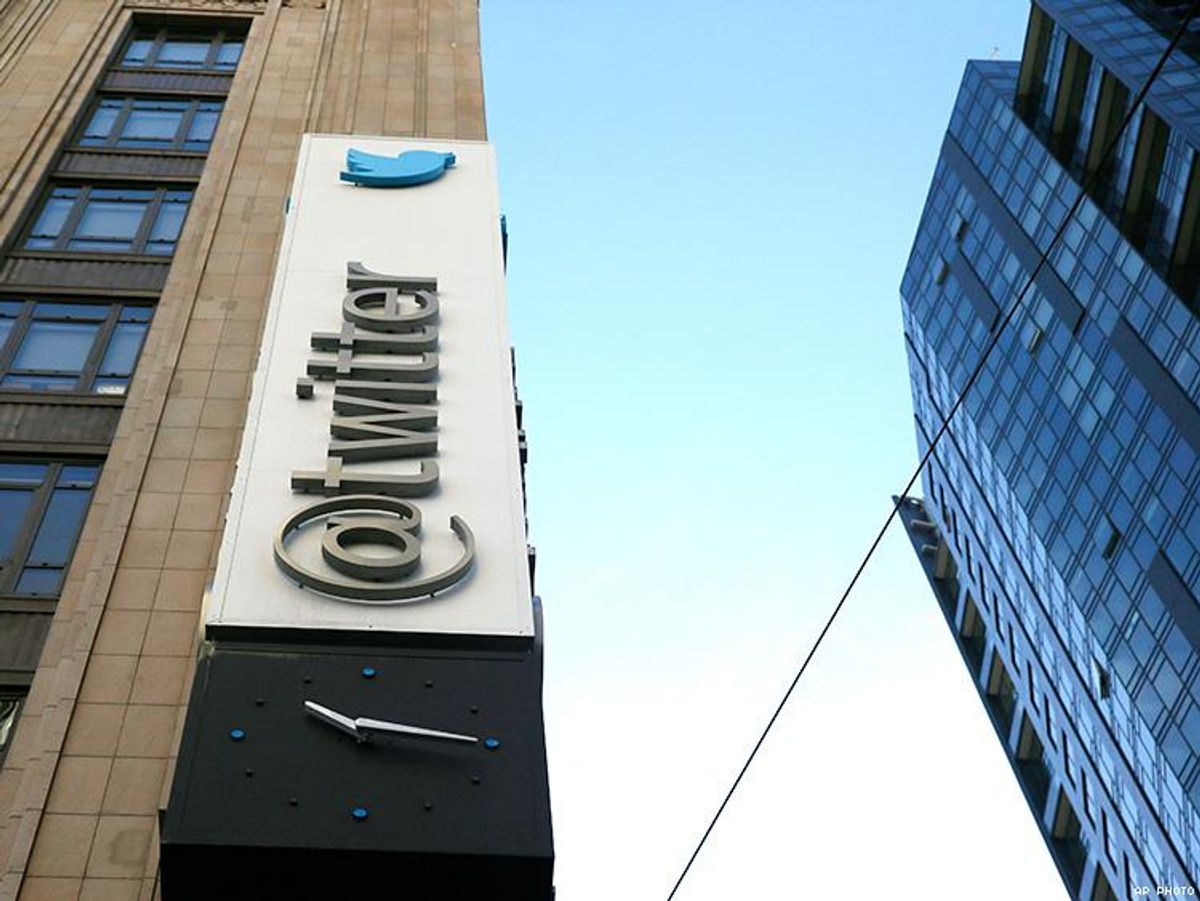Twitter has decided to end company blood drives after a gay male employee said he was barred from donating blood during a recent drive, the International Business Times reported Wednesday.
Since 1983, the U.S. Food and Drug Administration has barred all men who have ever had sex with another man -- since 1977 -- from donating blood, according to the FDA website. Because it does not have a system for recognizing trans women, the FDA still considers trans women who have sex with men to be part of the group of "men who have sex with men" (MSM in medical parlance) who are barred from giving blood.
The federal agency recently revealed a possible revision in the form of draft recommendations to the policy, stipulating that only gay and bi men who have abstained from sex for one year prior to giving blood may donate. But many advocates say the marginal change doesn't go far enough to dismantle the policy, which they argue is based on outdated science and screening techniques. Advocates also argue that the proposed revision still unfairly stigmatizes men who have sex with men, implying the entire population has blood that is somehow tainted.
Twitter stopped hosting blood drives after April, but announced its decision Wednesday after the company was rated by the Human Rights Campaign as be one of the best workplaces for LGBT employees, according to IBT.
"We made the choice to take a company stand against some of our employees being turned away from donating blood and will channel our efforts into education about this issue until this unnecessary and discriminatory policy is changed," Brian "Skip" Schipper, Twitter's vice president of human resources and executive sponsor of TwitterOpen, the company's LGBT employee group, told IBT.
According to the FDA, the blood ban is based on the idea that men who have sex with men "are as a group, at increased risk for HIV, hepatitis B and certain other infections that can be transmitted by transfusion."
But that justification doesn't sit well with Twitter executives, especially because all donated blood is screened for HIV and other illnesses prior to transfusion. Additionally, HIV detection, screening, and treatment options have greatly improved since the ban's creation in the early days of the AIDS epidemic.
"These are the only policies that the FDA has based on a person's identification and not any type of risky behavior that they're engaged in," Jim Halloran, president of TwitterOpen, told IBT. "Twitter took a very bold stance."
TwitterOpen is promoting a petition to alter FDA blood donation regulations and will continue boycotting blood drives until the restrictions on blood donation are based solely on risky behavior rather than sexual identity.
"We strongly urge the FDA to reconsider this draft rule, remove the restrictions on donations from MSM [men who have sex with men], and redraft safety regulations that are based on legitimate behavioral risk factors," Colin Crowell, Twitter's vice president of global policy, wrote in a letter submitted to the FDA in July. "[The policy] has forced us to reevaluate our values as a company and choose between continuing an important and valuable public service or canceling future blood drives at Twitter because it fosters an environment in the workplace that makes assumptions about, and diminishes the dignity of MSM."
According to the Human Rights Campaign, the American Red Cross, America's Blood Centers, and the American Association of Blood Banks have characterized the blood ban as medically and scientifically unwarranted as far back as 2006.
When the draft regulations were released in May, HRC government affairs director David Stacy said it was a step in the right direction but not a full solution. "This policy prevents men from donating life-saving blood based solely on their sexual orientation rather than actual risk to the blood supply," he said. "It simply cannot be justified in light of current scientific research and updated blood screening technology."
The FDA told IBT it "has been carefully reviewing and considering all comments in finalizing the guidance" for the change to its policy on gay and bisexual men. The agency has not committed to a specific timeline for when the change may go into effect.
In response to the FDA's rejection of gay and bi male blood donors, out filmmaker Ryan James Yezak launched the National Gay Blood Drive in 2013. The campaign looks to raise awareness about the FDA's policy and to solicit donations on behalf of men who have sex with men. Gay and bisexual men are asked to bring allies to blood drives, so the allies may give blood in their place. At the drives, the men who have sex with men fill out petitions informing the FDA of just how much more blood might be collected if the ban was lifted.
Media watchdog organization GLAAD also teamed up with the HIV advocacy group Gay Men's Health Crisis to launch a petition asking the FDA to screen all prospective blood donors based on risk rather than sexual orientation or gender identity. In a cheeky video hosted by bisexual actor Alan Cumming (watch that below), participants are asked to take the "Celibacy Challenge," pledging to abstain from sex for one year to be able to make lifesaving blood donations.
This month, France announced that it will liberalize its policy on gay blood donors, and in Canada there is hope that the newly elected administration will follow suit, after Canada revised its own long-standing ban in 2013 to allow gay and bi men to give blood after five years of abstinence.


















































































Viral post saying Republicans 'have two daddies now' has MAGA hot and bothered